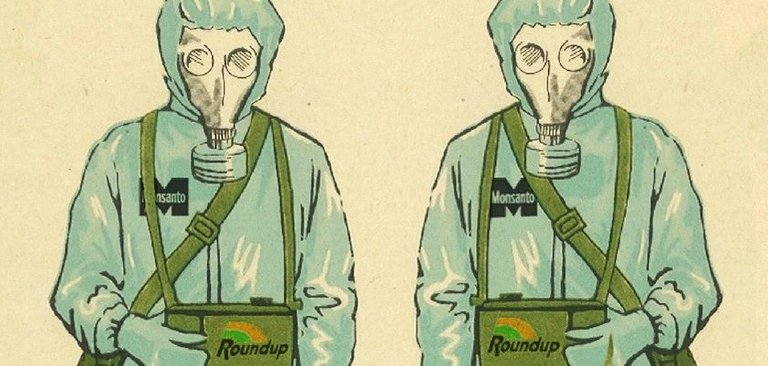
The FDA has detected significant levels of glyphosate, a commonly used herbicide, in a wide variety of foods — but it’s unlikely the agency will release these findings to the public.
According to internal documents obtained through a Freedom of Information Act request by the Guardian and the advocacy organization U.S. Right to Know, in January of last year, FDA chemist Richard Thompson wrote to colleagues: “I have brought wheat crackers, granola cereal and corn meal from home and there’s a fair amount in all of them.”
Thompson, who is based in a regional laboratory in Arkansas, warned that the only food that didn’t contain glyphosate appeared to be broccoli.
His tests are part of the FDA’s first-ever investigation into how widespread Monsanto’s glyphosate, the main ingredient used in Roundup weedkiller, has become in the U.S. food supply. As Newsweek noted in 2016, “in the 1990s, Monsanto began introducing genetically modified crops that were resistant to the herbicides, such as Roundup Ready corn and soybeans. Since then, its use has skyrocketed, increasing fifteen-fold since 1996. In 1987, only 11 million pounds of the chemical were used on U.S. farms, but now nearly 300 million pounds of glyphosate are applied each year.”
The Environmental Protection Agency has imposed lax guidelines on glyphosate and other pesticides, using Monsanto-funded research to justify its policies. At the same time, though the FDA is responsible for monitoring pesticide levels in foods, it has been the target of criticism from consumer watchdog groups and global agencies for its inaction on glyphosate.
Though some of the health effects of the powerful herbicide are disputed, current research suggests it can be toxic to human cells. The International Agency for Research on Cancer designated a potential carcinogen in 2015, but that finding has been heavily disputed, particularly (and unsurprisingly) by Monsanto, though researchers did reportedly leave out key findings that detracted from their designation. Nevertheless, they stand by their findings.
Despite the health concerns surrounding the heavily used chemical, the Guardian notes that because Thompson discovered its presence in foods during a test validating his analytical methods,“those residues will probably not be included in any official report.”
Even so, the outlet reported, “FDA chemist Narong Chamkasem found ‘over-the-tolerance’ levels of glyphosate in corn, detected at 6.5 parts per million, an FDA email states. The legal limit is 5.0 ppm.”
“An illegal level would normally be reported to the Environmental Protection Agency (EPA), but an FDA supervisor wrote to an EPA official that the corn was not considered an ‘official sample.’”
The documents also show that in 2016, Chamkasen found glyphosate in honey and oatmeal samples, but that shortly after, the FDA suspended testing, and he was reassigned to another project.
In a statement, an FDA spokesperson told the Guardian they had not found any illegal levels of glyphosate in corn, soy, milk, or eggs, the main commodities in their “special assignment” investigation into the herbicide. However, the spokesperson did not address the unofficial findings released in the documents.
This secrecy is unsurprising considering the revolving door that has long affected the FDA, but its behavior is nonetheless concerning.
“People care about what contaminants are in their food. If there is scientific information about these residues in the food, the FDA should release it,” Tracey Woodruff, a professor at the University of California San Francisco School of Medicine, told the Guardian. “It helps people make informed decisions. Taxpayers paid for the government to do this work, they should get to see the information.”
My Links:
Patreon: https://www.patreon.com/CareyWedler
Anti-Media: http://theantimedia.org/author/careyw1/
Youtube: https://www.youtube.com/channel/UCs84giQmEVI8NXXg78Fvk2g
Instagram: https://www.instagram.com/careywedler
Facebook: https://www.facebook.com/CareyWedler/
Twitter: https://twitter.com/careywedler
Considering the amount of garbage they are spraying us with for a decade now I'd find it hard to believe that one could find ANY kind of food anywhere which is not already poisoned one way or the other. The shit is in our air, water and soil.
I don't even want to eat food anymore!
Thanks for this information. I was just considering the wheat straw I use for my chickens. Isn't all wheat forced to mature using Roundup? And therefore the animal bedding I get from my feedstore would be Roundup dosed straw? Ugh! Straw which, once the chickens are done with it...goes into my compost pile and mulches my vegetables? It is obscene how one corporation has poisoned the entire food web
There is now such high levels of glyphosate in wheat, that breweries are having to switch to organic wheat, because the glyphosate is killing the brewing yeasts.
Do you have a reference for this? I don't mean that question in a "prove it to me" way, simply that a validated-in-some-form source would be useful to share with colleagues and clients who have an interest in these topics, but are new to it and have some skepticism as well.
It was a comment from some organic type farmers, talking in a podcast about not being able to get glyphosate test strips, because the breweries where buying them all up. (and they hadn't ramped up production for the sudden demand). I do not remember where specifically i heard it. I will poke around a bit for it, but i doubt i will find it.
thanks for sharing!!
Glyphosate disrupts the communication pathways between our cells. Keep fighting Carey.
Curated for #informationwar (by @wakeupnd)
Relevance: Sharing the truth.